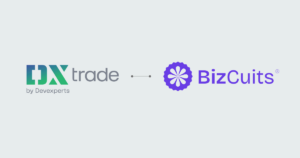Standard Chartered unveils plans for Hong Kong virtual bank license
The bank has established a task force to study the details of the revised guidelines on the authorization of virtual banks as stipulated by the Hong Kong Monetary Authority.

Standard Chartered Bank (Hong Kong) Limited is planning a push into fintech innovation, as the bank has earlier today announced its plans to apply for a virtual banking license in Hong Kong. The move is a part of the bank’s strategy of advancing financial inclusion, fintech innovation and bringing enhanced client experience in Hong Kong.
The bank says it has formed a task force to study the details of the revised guidelines on the authorization of virtual banks as set out by the Hong Kong Monetary Authority (HKMA).
Samir Subberwal, Regional Head, Retail Banking, Greater China and North Asia, Standard Chartered, said, “We have talked to clients and we started with the realities of Hong Kongers’ lives. People do not want another account with a different brand, they want their financial lives simplified. That is why we believe that the launch of a virtual bank will give clients the choice of going completely digital for their everyday banking needs.”
In the end of May 2018, the Hong Kong Monetary Authority published its guidelines on the authorization of virtual banks. During the public consultation on the matter, there was broad support for virtual banks to operate in the form of a locally-incorporated entity with no physical branches.
The HKMA has pointed out that a key objective of introducing virtual banks in Hong Kong is to help promote financial inclusion by leveraging on the banks’ IT platforms that would lower the incremental cost of taking in additional customers. The HKMA therefore remains of the view that virtual banks should not impose any minimum balance requirements or low-balance fees on customers.
Furthermore, given that virtual banking is a new business model in Hong Kong, the HKMA considers it wise to require virtual bank applicants to develop an exit plan. The purpose of an exit plan is to ensure that, should it become necessary, a virtual bank can unwind its business operations in an orderly manner without causing disruption to the customers and the financial system.
The regulator has also noted that the minimum paid-up capital requirement of HK$300 million is stipulated in the Banking Ordinance and is applicable to all licensed banks. It is neither possible nor appropriate to lower the minimum capital requirement for virtual bank licensees.
HKMA warned back then that those companies that have not been able to submit a substantially complete application to the HKMA by August 31, 2018, are most unlikely to be included in the first batch of virtual bank applications to be processed by the regulator. In processing these applications, priority will be given by the HKMA to those applicants which can demonstrate that (i) they have sufficient financial, technology and other relevant resources to operate a virtual bank; (ii) they have a credible and viable business plan that would provide new customer experience and promote financial inclusion and fintech development; (iii) they have developed or can develop an appropriate IT platform to support their business plan; and (iv) they are ready to commence operation soon after a licence is granted.









